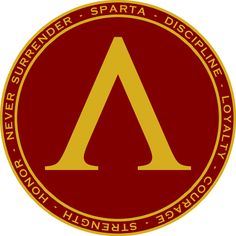Around 800 B.C.E., the Greek people were emerging as an Aegean power because of the growth of their many urban centers: city-states called poleis. These poleis functioned as principle centers for Greek societies. They varied in their political views and cultural practices from one another. One of the most important of the Greek city-states was the polis of Sparta.
Sparta was a part of a region called Laconia, which was located on the fertile peninsula in Greece called the Peloponnese. Although the Spartans were landlocked, they had the ability to use the Gyethio harbor when needed, along with the Evrotas River as a source of fresh water. Spartans had neighbors called helots, who were the descendants of the earlier Greek immigrants to Laconia. The helots were defeated by the Spartans, and were forced to serve as slaves to the Spartan community, and were not recognized as equal members of the Spartan society. Another group of people who were living within the Spartan society were called the Perioeci people. Their name translates to dwellers around, and they worked as traders and craftsman in the community, but were not citizens of the land of Sparta either. The Spartan exploitation of the helots allowed them to live a lifestyle of simplicity, frugality, and austerity. From this lifestyle, the Spartans were able to create an educational system they called the Agoge.1

The Agoge was characterized by the way Spartans raised their children and how they educated them. Their educational system emphasized physical education, warfare, and how to survive as a warrior. This was the toughest test one could face at the time because the Spartan army was well known all throughout Greece as having the most fearless and toughest fighting men in the world. Before a male child went through the hardships of the educational system, the child faced his first test at birth. Once the child was born it would be bathed in wine to determine if the baby would be strong enough to go through the hardships of becoming a Spartan warrior.2 Once the child survived, the elders who ruled Sparta would examine the baby for any birth defects or any blemishes that the baby might have. If the baby did not survive the wine bath or the Elder assessment, the baby was sent down to Mount Taygetos to perish.

If one were born a male, one would be raised mainly by one’s mother until reaching the age of seven. Boys were then sent to military training, or the Agoge. They were forced to learn to survive on their own, create their own meals, and learn to fight in the worst of conditions. During the Agoge, young Spartans would learn to overcome their fears by never showing weakness and trusting only a Spartan. The boys would also dine and be exposed to the lifestyle of a Spartan soldier and learn how to conduct oneself as a Spartan solider in society.3 By the age of twenty, males were encouraged to marry and have children. In order to fulfill this expectation of creating a family, the young soldiers were forced to sneak out of their barracks and return to the city to see the females. The young soldiers had to sneak out because their Agoge camp was away from the city and the trainees had to remain there until their training was completed.
By this age the soldiers were showing promise to their elders. The elders would let them start their membership to the syssitia, or clubs that had to do with dining hall messes and social religious groups within the city. The syssitias were already established through the army. The boys were placed or drafted into these different syssitias. Once placed into their syssitias, the boys would finish their training in these syssistias and learn how their new unit contributed to Spartan society. However, Spartan men were not considered or thought of as citizens until they reached the age of thirty. Once they were thirty, the trainees would become a full time soldier and full-membered citizens. Once this happened, they were allowed to participate in their new syssitia. It was an honor to participate in the mess hall because it shows that one was strong enough to provide for one’s family and for the community. Also, one belonged to a troop and had rank within the society. Even though they were seen as equals within the community, the men were not yet allowed to sleep with their wives overnight. The men were forced to sleep in quarters that housed each different syssitia. Now as an active soldier and equal in society, one served the Spartan army until the age of sixty.4 By the age of sixty, Spartans focused on their family and helped groom other young men that were in the process of becoming Spartan warriors. When serving the Sparta military, they held to the motto to come back victorious or die trying to be.
Although Sparta was a small polis within Greece, it was still able to be a prosperous and feared power in Greece. The Sparta population was about fifty to sixty thousand, which included the helots and Perioeci people. The Spartans only made up about fifteen thousand of that sixty thousand population. They were outnumbered sixteen to one, but were able to maintain order and peace through their strong and feared soldiers. This characteristic was admired by other city-states within Greece, many of whom took that admiration to forms of imitation. These traits that the Spartans would show and live by would eventually be copied or altered by others for a way of living or a way to build a strong army.
- Stephen Hodkinson, Anton Powell, and Jacqueline Christien, Sparta & War (Classical Press of Wales, 2006), 56-62, 102-126. ↵
- Maurice Pope, “Spartan details of daily life,” Times Higher Education Supplement no. 1626 (2004): 35. ↵
- John Buckler, Aegean Greece in the Fourth Century BC (Boston: Brill, 2003), 187-195, 203-210, 228-231. ↵
- Anton Powell, Athens and Sparta: Constructing Greek Political and Social History from 478 BC (Routledge, 2016), 78-93, 147-158, 303-331. ↵



51 comments
Alexis Soto
This is Sparta! I remember those legendary words from the film 300. This was a good article that informed me of the Spartans, although I would debate the claims that they were the most important of the Ancient Greek city-states. Athens could give them a run for their money. It was interesting to learn of how children were raised and treated.
Matthew Rios
It’s interesting to see how physical strength and mental fortitude was so important in such a society. While we’re definitely more civilized now, it’s sad to see the decline of value in these traits for most people. A country is only as strong as its people and its values. While there were still some what we’d consider barbaric traits in Spartan society, they definitely had one thing right. Physical fitness combined with mental fortitude, makes a powerful man.
Andrew Rodriguez
This is a very good article, on where the most feared soldiers come from. It makes sense how they could be outnumbered, and still manage to keep all the power in the city state. Who would want to mess with them I wouldn’t. So much of there training and tactics have been adopted into our military practices as of today. As with the quarters and everything that has been implemented. They just didn’t raise soldiers, also good men that benefit the city state both in battle and in the city. Being full time citizens, is what was remarkable to me about this article I didn’t know that.
Khoa Tran
Very informative article. I would never have imagine that a seven years old boy would be send to the military. And they will spend 23 more years training before becoming a full time warrior. I also want to mention Spartan battle strategy called ” the phalanx formation”. With a tough army and a close-rank, dense grouping of warriors formation, the Spartan army is truly the most feared military force in ancient Greece.
Steven Clinton
Great article. The Spartans were one of the most fearless warriors of all time; there brutal training regiment and harsh lifestyle conditions caused to grow up tough and mighty. It’s interesting how the Spartans bathe their young in the wine to test the potential of their newborns. I wonder how they even came up with the idea. Overall this was a great article.
Nicolas McKay
Fantastic Job on the article Nathan! The Spartans were truly a warrior society unlike anything History had seen before, or even since. It is incredible the hardships they lived with in the name of becoming warriors, specifically the intense training dealt unto the children. Its interesting how many of these practices sound cruel and unusual to us, but back then they were common practice. It certainly worked, as the Spartans were some of he greatest warriors to have ever existed.
Erick Paul Martinez
This was a very interesting article on a great topic. I had little prior knowledge of the ridiculous training undergone by men to become Spartan warriors. It is no surprise the Spartan people were known for such amazing and fearless warriors considering the various test they were forced to undergo throughout their lifetime. They were held to a very high standard, and were expected to do a lot in their lifetime.
Andrew Gray
I like how this article stated that the trainees were “forced” to sneak out their barack’s to go see the women of the city, it really doesn’t sound to different to some of the things kids do these days. Its also interesting to hear how they kept their slaves obedient being that they were literally outnumbered 16-1. Very great article about the Spartan people and their traditions.
Mario De Leon
This article was very descriptive and had a good introduction paragraph about Sparta. The author does a good job describing how harsh the Spartans were with their neighbors and to fellow Spartans. I knew the Spartans were tough warriors but I did not know they started training at birth with bizarre test like a wine bath. I find it interesting that Sparta was a small territory yet it was still feared by many.
Samuel Sanchez
Amazing article. I watched the movie 300 multiple times but I never knew the hardships the Spartan boys had to go through just to be accepted. I always thought the movie’s perception was a bit exaggerated but now not so much. It is amazing how much hardship the Spartan babies had to endure straight out the womb. Simply amazing. Shows how fearsome and terrifying the warriors were. Great job with the article!